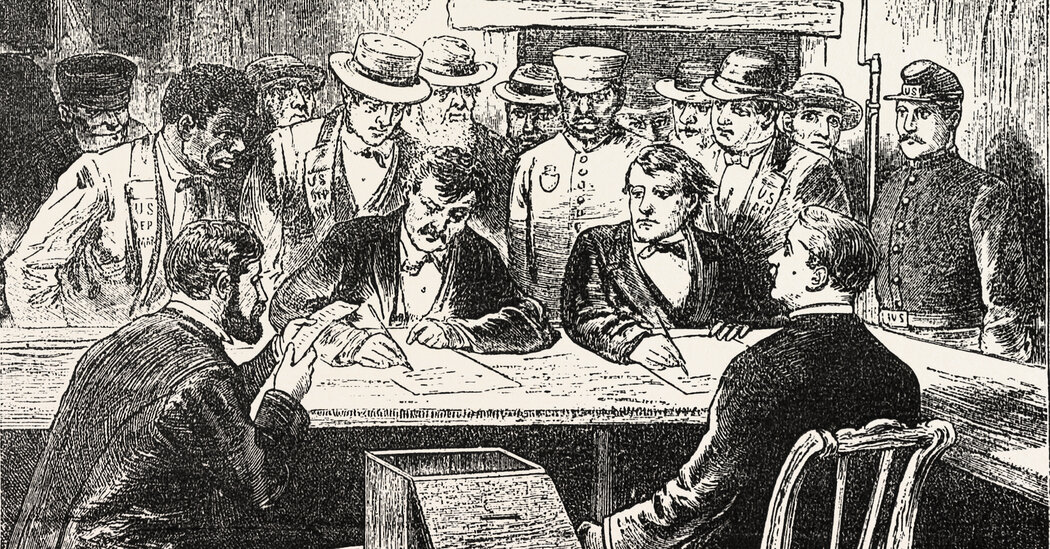Hayes believed, probably correctly, that had there been “a fair election in the South, our electoral vote would reach two hundred and that we should have a large popular majority.” As the historian Michael Fitzgibbon Holt noted in “By One Vote: The Disputed Presidential Election of 1876,” “Had blacks been allowed to vote freely, Hayes easily would have carried all three states in dispute, Mississippi, and perhaps Alabama as well.”
In the weeks following the election, Democrats and Republicans in those states would fight fierce legal battles on behalf of their respective candidates. In South Carolina, where an election for governor was in dispute as well, Democrats threatened to seize the statehouse by force. The predominantly Black Republican majority in the state legislature tried to certify the Republican candidate as the winner, and Democrats went as far as convening a separate legislature, where they crowned their candidate, Wade Hampton III, the victor.
It took a special 15-member electoral commission, convened by Congress, to resolve the presidential election crisis. Split along partisan lines, a narrow majority of the group voted to award all 20 disputed electoral votes to Hayes, giving him the White House. To satisfy Tilden’s recalcitrant supporters — who, according to the historian Eric Foner, threatened “to paralyze deliberations in the House of Representatives and obstruct a final count of the electoral vote, thus preventing inauguration” — President-elect Hayes promised to pursue a policy of noninterference in Southern affairs and allow so-called home rule in the states of the former Confederacy.
The crisis of 1876 is one of the most interesting — and frankly convoluted — episodes in American political history. But it is strange for Senator Vance to cite it as an example of what should have been done in 2020. The big and most important reason is that there was actual fraud and violence and intimidation in the 1876 presidential election cycle. In one incident in Hamburg, S.C., a paramilitary death squad of white Democrats — called Red Shirts for their attire — stormed a local armory and kidnapped more than two dozen Black citizens, executing several men on the spot. A ringleader of the attack and massacre, a prominent young landowner by the name of Benjamin Tillman, would go on to serve four years as governor and 23 years as a United States senator, from 1895 until his death in 1918.
If Trump voters had been attacked, intimidated and defrauded, then there might be reason to make the comparison with 1876 and demand serious investigation into the integrity of the vote. But as we know from actual litigation carried out over two months, there was no fraud to speak of. The 2020 presidential election was arguably the most secure — and among the most scrutinized — in American history.
